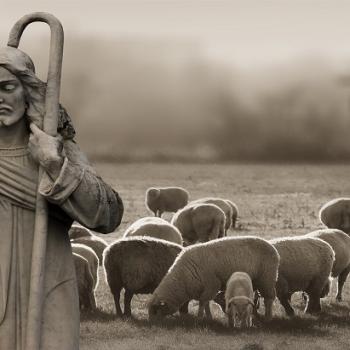I’ve recently taken to defending Catholicism, even though I’m a Protestant (Methodist), during my studies on the Catholic faith. During this last week of my learning more about Mary, the saints, and Purgatory, among other things, I’ve learned about the sheer vitriol Catholics face from some Protestants.
Catholics “Aren’t Saved”?!
It’s bad enough that some Protestant authorities share misconceptions about what Catholics believe. But some of these leaders believe that Catholics aren’t even saved.
Here’s a video compilation on this matter made by the Protestant YouTube channel ReformedWiki:
https://youtu.be/yOkj3_Gsy70
Right out the gate, this video is seemingly demonizing Bishop Robert Barron. All Bishop Barron did here was mention an objective interpretation of the Council of Trent. In this Catholic council, the Catholic Church stressed its definition of “justification”. This was a response to the ongoing Protestant Reformation and the debate over things like sola Scriptura.
Also, here’s a quote from this video that stands out to me as particularly toxic:
“…Some will read it as unkind and unloving. But nothing is more loving than the truth. To let somebody perish in a false system isn’t loving at all.
To rescue people out of a damning and false religion is the only loving thing to do.”
-John MacArthur speaking on Catholicism
John MacArthur, the pastor of the Grace Community Church in Los Angeles, has a low view of both Catholicism and Orthodox Christianity. I found this blog post by Catholic writer Douglas Beaumont addressing MacArthur’s incorrect view of Mary’s role.
In this video above, MacArthur and the other Protestant voices focused on one particularly contentious doctrine: sola fide.
Faith With or Without Works?
Sola fide (“by faith alone”) is another fruit of the Protestant Reformation. At the time of the Reformation, Protestants accused the Catholic Church of stating that merely having faith in Jesus isn’t enough.
This article by Sal Ciresi on EWTN, a prominent Catholic site, explains why sola fide is contrary to the Bible. Per Ciresi, the Catholic Church doesn’t ever teach that we can “earn” salvation through our works. Instead, faith is supposed to be an ongoing process involving “works of love”, referenced in Galatians 5:6:
“For in Christ Jesus neither circumcision nor uncircumcision has any value. The only thing that counts is faith expressing itself through love.” (Galatians 5:6)
Another verse to keep in mind here is James 2:24:
“You see that a person is considered righteous by what they do and not by faith alone.” (James 2:24).
The NIV Bible made a great choice of words in this verse compared to other versions. Righteousness reveals itself by both faith in God and how we treat others.
Here’s an informative video on this topic by Ascension Presents:
Like these speakers say here, “works” refers to acts of love done for others. They referenced Matthew 25:35-40, where Jesus praises the righteous for doing good to others.
Trent and Grace
I’m still trying to learn about church history, especially the Reformation. Ironically, it wasn’t until I watched ReformedWiki‘s video above that I learned about the Council of Trent.
Some of the leaders in the video made direct references to the decrees laid out in the Council. I searched and found the transcript of the Council’s Decree Concerning Justification on EWTN.
This is an interesting read! Chapter XVI of the Decree states that “good works” are the “fruits of justification”. That is to say, these works are the result of one being justified by Christ.
I’ll say, however, that some of this information is a hard pill for me to swallow. Chapter XV of the Decree unambiguously states that mortal sin can cause a loss of grace. That was jarring to read.
But, it has Biblical support. I read this article by Catholic Education Resource Center that explains this further. They reference both Matthew 25:36-41 (where Jesus likewise condemns those who refused to do good) and Matthew 7:21:
“Not everyone who says to me, ‘Lord, Lord,’ will enter the kingdom of heaven, but only the one who does the will of my Father who is in heaven.” (Matthew 7:21)
We can also find more proof of this in the Parable of the Unforgiving Servant (found in Matthew 18:21-35):
Other Issues
Of course, sola fide isn’t the only source of Protestant contempt towards Catholicism. The list goes on! Here’s a video by FTD Facts exploring other lies against Catholicism:
This is a highly informative video, and I recommend watching it! The author of this channel did a great job debunking some of the biggest lies and misconceptions about Catholic beliefs.
That being said, as a gay Methodist, I’m still not on board with the Catholic Church’s stance on gay people. This is one of the biggest reasons why, despite my interest, I’ve held off considering converting to Catholicism. However, I appreciate that the Catechism also demands that we be treated with “respect and sensitivity”.
Another issue that prevents me from becoming Catholic is the rampant revelation of abuse we’ve learned of. For example, this article by America Magazine, a Catholic publication, discussed the horror of 600+ bodies found near an old Catholic school in Canada.
Then, there’s the blatant issue of sexual abuse. From what I’ve read, the official institutional response from Catholic authorities about these horrifying accounts has been unsatisfactory.
Catholics as a whole aren’t responsible for these crimes against humanity. But, I can’t justify my desire to convert when the overarching leadership hasn’t cracked down like they need to.
Keith Nester’s Conversion Story
I’ve been looking up testimonies of Protestants who converted to Catholicism. It’s gratifying to hear these individuals speak about some of the things that hold me back from converting!
Here’s a YouTube video from Keith Nester, a former Protestant pastor, about what kept him from converting:
In his video, Keith discusses the issue of seeing Catholics who weren’t passionate about their faith. This is an understandable problem to take issue with. After all, Jesus Himself said in Revelation that nobody should be lukewarm (Revelation 3:16).
Keith also addresses the problem of other Protestants willfully fueling lies about Catholicism. When we only hear these negative views of another denomination, it inhibits our willingness to learn more about it.
To explain this, Keith talks about how Protestants believe that Catholics have an unhealthy obsession with Mary. He quotes directly from the Catechism, noting what the official teaching actually says. Keith shares that the Catechism teaches Mary’s status doesn’t diminish Jesus’ role in our lives.
Here’s a follow-up video Keith’s done that addresses other Protestant concerns about Marian devotion:
I understand why we Protestants see Marian devotion as outright “worship”. But no Catholic truly “worships” her, or any saint for that matter.
I Must Protest(ant)
As a Protestant myself, I take issue with a few things in Protestantism.
Pedestal Problems
Even though some Protestants accuse Catholics of “worshipping saints”, I think we do it ourselves. A recent example is how some Protestants have tried to defend John MacArthur. After that article by Julie Roys came out, we’ve seen both calls for justice and bizarre support for MacArthur.
Here’s an example, a rebuke of this defense by the Christian YouTube channel Faith On Fire:
This also applies to other Christian leaders throughout the ages. Unfortunately, former president Trump is a prime example. Christians still give him undeserved adoration despite all of his blatant, unrepentant wrongdoings.
All Christians need to avoid putting human leaders on pedestals where they don’t belong. Another Christian YouTuber shared this verse, Psalm 146:3, which perfectly sums this up:
“Put not your trust in princes, in a son of man, in whom there is no salvation.” (Psalm 146:3)
Again, many Protestants accuse Catholics of “worshipping Mary”. I hope they don’t also believe that Catholics trust Mary for salvation. I’ve studied this, and Catholics know that the Blessed Virgin always points to her Son, never to herself.
May we Protestants likewise take care that we don’t obsess over (venerate) our Protestant leaders who point to themselves instead of Jesus.
After all, Mary works to bring people closer to God and trust Him. She deserves the respect given to her. But Christian leaders who instead sow division through Godless vitriol deserve to be held accountable.
Cut It Out!
Truly!
Another issue I have with Protestantism is what I consider “religious diluting”. Through my research on the Reformation, I’m starting to understand both sides of this ongoing debate better. Even so, I’m still irked by Protestantism constantly cutting out anything it deems “wrong” or “inconvenient”.
For example, the deuterocanonical books, the seven “extra” books of the Old Testament removed by Protestant versions. At first, I thought that these counted as “Apocrypha”. Then, I found a couple of articles by Catholic Answers offering a solid explanation to the contrary.
My question is, of course, why were these removed in the first place? This article by Penn Book Center explains that the deuterocanonical books were created after the Old Testament but before the New Testament. Martin Luther removed them from the Bible (and tried to remove a few New Testament books) for not supporting Protestant doctrines like sola fide.
This disagreement, at least from what I’ve read, started a chain reaction of further disagreements during the Reformation. We have multiple denominations, all claiming to have the “right answer”. Which Protestant denomination are we supposed to trust if they each say that they alone are correct?
Where’s the Answer?
My need for answers to some tough spiritual questions is one of my biggest motivators to become Catholic.
I’ve had to deal with some nasty, bizarre cases of spiritual warfare ever since my college years. I tried to find Protestant answers to this, to no avail. When I discovered the testimony of St. Gemma Galgani, I found a kindred soul who’d experienced this to an alarming degree.
The testimonies of certain Catholic saints have helped me find peace over specific issues. A big one was the matter of suicide and what happens to suicide victims in the afterlife. Learning about St. Faustina Kowalska and her talks with Jesus about His Divine Mercy gave me the answer I needed.
Here’s a wonderful example of St. Faustina’s discussions on Divine Mercy:
I’m grateful for the answers I found. I never thought that my Methodist self would ever take comfort in Catholic lessons, but here we are!
Final Words
One day, I might finally convert to Catholicism. I’ve had multiple wholesome experiences in the last several years, many of them focused on Mary and St. Michael the Archangel. Even though I’m a Methodist, I feel watched over and protected by prominent Catholic figures.
I understand why other Protestants take issue with Catholicism. That being said, I urge anybody with Catholic misconceptions to ask questions and do some personal study of these matters. As Christians, we should always do our best to avoid spreading lies about each other.
On that note, to finish this blog post off, here’s a YouTube collaboration featuring Cameron Bertuzzi of the channel Capturing Christianity. Cameron has been investigating Catholicism himself, and in this video with fellow Christian Braxton Hunter, they discuss Cameron’s journey.
Featured Image by jplenio/Pixabay
Hello, and thank you for supporting my work here on Patheos! If you’d like to support me further, please feel free to “Buy Me A Coffee” here:
















